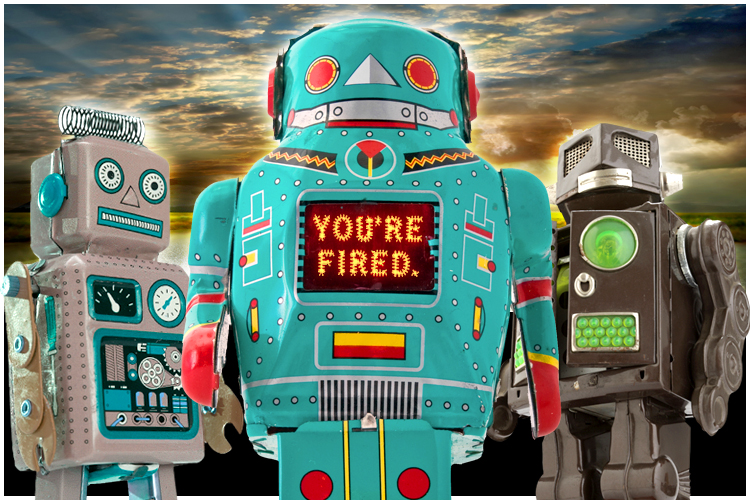Employment will always exist…but
I listen to everything, and belong to myself only. I subscribe to many magazines that could get me on a watchlist, as well as “sane” publications that wouldn’t. Like Reason. Recently an article said this to counter the argument that robots will take our jobs:
In 1910, one out of 20 of the American workforce was on the railways. In the late 1940s, 350,000 manual telephone operators worked for AT&T alone. In the 1950s, elevator operators by the hundreds of thousands lost their jobs to passengers pushing buttons. Typists have vanished from offices. But if blacksmiths unemployed by cars or TV repairmen unemployed by printed circuits never got another job, unemployment would not be 5 percent, or 10 percent in a bad year. It would be 50 percent and climbing.
It is an easy argument to make – people always find new jobs, and technology enriches our life as it destroys old jobs.
The author is correct. Bravo!
But here’s what all these expert commentators are missing. It’s not about whether we will have employment, we’ll always find ways of paying each other to do things we don’t want to, or cannot do. It is about the value of human employees.
As robots, AI and so on take our jobs, large businesses will increase their profits and have less use for human staff. For corporations, the average hourly dollar worth of a human is declining. Profits will rise and the rich will get richer.
If your job has been taken, you will probably find new employment. But you will be less likely to be hired by a corporation (with big profits) and more likely to be a part of a local ecosystem where everyone employs each other. I mow your lawn, cut my hair, he delivers parcels, I order pizza.
I know “trickle down” is a joke, but it has a degree of reality – corporations pay staff from their profits, and staff spend that money. As corporations trend towards less staff, less of their profits will trickle down. More will be retained by the owners and executives.
The long-term trend is for a a working class who are getting more things and lifestyle than ever before, but will be relatively poorer financially. Our jobs will be more service oriented and less about creating products or providing food.
We already have flat wage growth throughout the prosperous countries.
Next up – reduced incomes. It is coming. I’ll wager 2020 is the year we accept that the 90% will be valued less than before.
